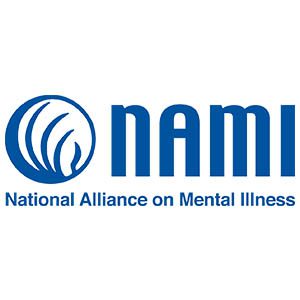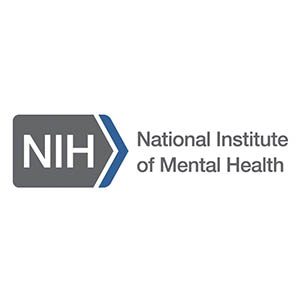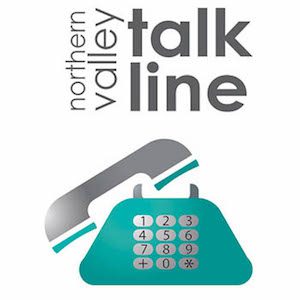Mission
Our mission is to provide care for a variety of emotional and psychological challenges, delivering support through crisis intervention, mental health wellness, and recovery services.
General Info
Our Behavioral Health facility accomplishes its goals by providing access to age appropriate services, ensuring the quality of those services, and educating patients about their rights. We also emphasize prevention through the implementation of mental health services act programming. Within the first year of the Full Service Partnership Program, participants experienced a 90% drop in urgent mental health related visits to the emergency room and crisis services.
If you would like to request a referral you can do so by following this link.
Services Offered
Mobile Crisis Team:
Mobile crisis services are a new benefit California is providing as of January 2024 to support people experiencing a mental health or substance use crisis. Services are available 24 hours a day, 7 days a week, 365 days a year. They are designed to provide intervention, de-escalation and relief to people wherever they are, including at home, work, school, or on the street. Services may include:
- Crisis intervention & assessment
- Referrals for needed services
- Linkage to ongoing mental health and/or substance use treatment
Mobile Crisis Team staff are specially trained in crisis mental health assessment and intervention including suicide prevention and coping skills. Anyone can call, for themself or for someone else in crisis in Tehama County. To reach the Mobile Crisis Team, call the TCHSA 24 Hour Crisis Line at 1-800-240-3208.
Medication Support:
For an overview of our medication support services and how we can help community residents visit our page on the subject here.
Children’s Services:
Our Behavioral Healthy facility offers services designed to meet the needs of children, teens and young adults, ranging from ages 2-25. We provide in home, rehabilitative and case management services. These services focus on building children’s skills to reduce symptoms, and promote personal independence. We also coordinate with other organizations including schools, child welfare services, and private practitioners in the community. This allows us to identify potential clients as well as link existing clients to services. We believe that a child’s success with treatment requires a multi-disciplinary approach with family involvement. That is why our programs are provided in partnership with the individuals family or guardian and delivered in both individual and group settings.
- Presumptive Transfer – If you need assistances with a presumptive transfer, please contact presumptivetransfer@tchsa.net or (530) 527-8491
- Youth Services Referral – Community partners needing to make a referral for youth may use this form to submit referrals for specialty mental health services.
Adult Services:
Behavioral Health offers a wide variety of clinical services for adults. Services are geared toward meeting the needs of individuals suffering from persistent and severe mental illness. Treatment is available for mental illnesses including co-occurring disorders where an individual has both a mental health and a substance use issue. Treatment is also available for those who have been experiencing psychotic episodes.
- Assisted Outpatient Treatment (AOT) – This program allows Tehama County to provide intensive, court-ordered treatment in the community for individuals with severe mental illness who would otherwise by unable to obtain timely intervention. AOT utilizes a multi-disciplinary team approach including case management, rehabilitation groups, therapy, medication support, substance use services, coordination with primary health, peer support, employment and housing assistance. You can refer someone by clicking the following link.
- Behavioral Health Referral for Services – Community partners needing to make a referral for adults may use this form to submit referrals for specialty mental health services.
- Community Assistance, Recovery and Empowerment (CARE) Act Program – This new civil court process provides community-based behavioral health services and supports to Californians living with schizophrenia spectrum or other psychotic disorders who meet health and safety criteria. Certain people, such as family members, first responders, and providers, may file a petition to the court to create a voluntary CARE agreement or a court-ordered CARE plan. A CARE agreement or CARE plan may include treatment, housing resources, and other services. The CARE Act is intended to serve as an upstream intervention for individuals experiencing severe impairment to prevent avoidable psychiatric hospitalizations, incarcerations, and Lanterman-Petris-Short (LPS) Mental Health Conservatorships. For more information on the criteria for eligibility, please click here or visit the CARE Act page on the Tehama Courts website. You can find out more about how to refer someone by visiting the Self-Help Assistance & Referral Program website at https://sharpcourts.org/.
- First Episode Psychosis Program – The word psychosis is used to describe conditions that affect the mind, where there has been some loss of contact with reality. The first episode psychosis program is designed for individuals who have experienced a psychotic symptom for less than 5 years and are between the ages of 15-30. In this program, individuals receive specialized assessments, case management, therapy, and medication.
- Full Service Partnership Program – A program designed for individuals who have been diagnosed with a severe mental illness and would benefit from an intensive service program. The foundation of Full Service Partnerships is doing “whatever it takes” to help individuals on their path to recovery and wellness. Full Service Partnerships embrace client driven services and supports with each client choosing services based on individual needs. The program targets those who are homeless or at risk of homelessness, involved in the criminal justice system, have continuous use of the emergency room due to mental health, at risk of institutionalization, and/or have continuous use of the CCRU.
- STANS Wellness & Recovery Center – A client driven center available to our adult and older adult clients. At the wellness and recovery center, peer and staff led groups are available providing activities like drumming, life skills education, instruction on symptom management, Wellness Recovery Action Planning, and employment training opportunities. At the STANS center, each client is empowered to participate in their own recovery. You can find a list of event dates and times on our calendar.
Support for adults suffering with mental illness also include a variety of housing services for those who meet the criteria and are actively participating in treatment. Housing supports are designed to prevent behavioral health clients from returning to or falling into homelessness. Additional supports for clients include community resource referrals.
How to Access our Services
Behavioral Health services is open to Tehama County residents and Medi-Cal beneficiaries. Eligibility is determined through our assessment process to identify if an individual has a severe and persistent mental illness or is a child with severe emotional disturbance. You can access services by calling 1-800-240-3208.
The first step in the process is to have an assessment, clients can either walk in or schedule an appointment. Once an assessment is complete and the individual’s unique needs are identified, a plan for treatment and services can be developed. Depending on eligibility, treatment and necessary services, resolution may take place with the county or with an outside provider.
If you need peer to peer support for a non-crisis event, we encourage you to call the Northern Valley Talk Line at 1-855-582-5554 peers are available to chat from 4:30pm to 9:30pm. Alternatively, you can call our 24 Hour Crisis Hotline at 1-800-240-3208.
Mental Health Services Act
California State Proposition 63, the Mental Health Services Act (MHSA), was passed in November of 2004. It provided counties throughout the state with additional funding to deliver mental health services. There were nine specific areas that counties would need to focus their efforts on, including access to services, housing needs, employment, outreach, full service partnerships, prevention, early intervention, workforce education and training, capital facilities, and innovative technology practices. Through a collaborative stakeholder planning process the following areas were identified as needing attention within Tehama County, permanent housing for mental health consumers, providing mental health services in outlying areas, helping consumers obtain meaningful employment, outreach and engagement on how to access mental health services, the need for on- site hospital assessments, need for additional services on weekends, as well as the need for specialty services for dual diagnosis, tele psychiatry, and finally staff training and development. To learn more about the activities associated with addressing these needs please review our Mental Health Services Act Plan located in the publications section of our website.
Connections
National Alliance on Mental Illness
National Institute of Mental Health
Northern Valley Talk Line





